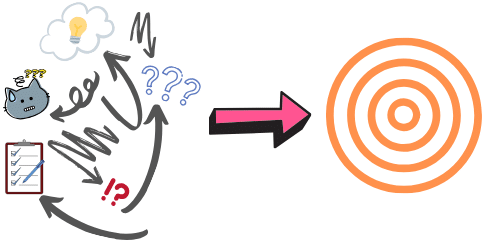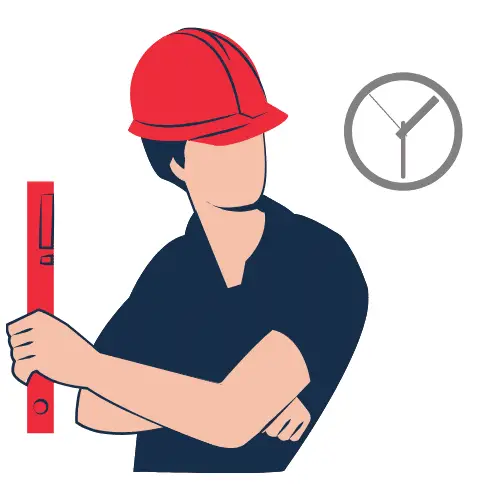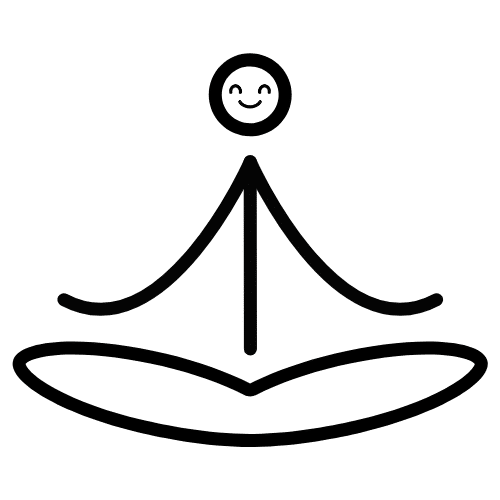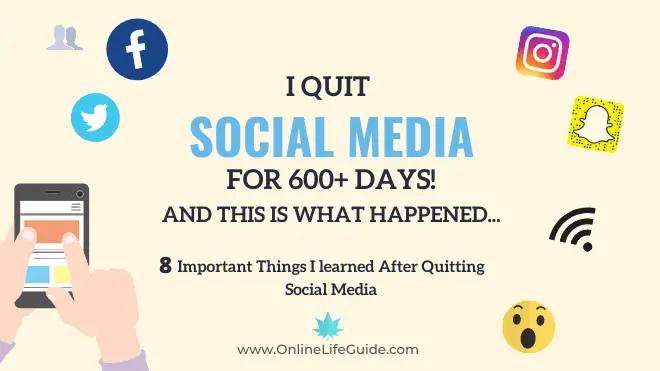How to Stay Consistent in Life – 10 Laws of Consistency

Whether you’re seeking discipline and consistency in achieving your goals, being consistent in your start-up business, maintaining consistency in the habits that you want to develop, or just want to be generally consistent in your life overall.
In this quick guide, we’ll look into the 10 principles to be Consistent at anything you do. These 10 principles will help you master and conquer any area of life.
I’m not going to preach to you the importance of planning, scheduling, and goal setting.
If you are reading this article, chances are that you already have some goals and are into goal-setting at some level, and by now you’re aware that setting goals and making plans to achieve those goals isn’t the real deal at all.
The real deal is to follow through with those plans and be consistent in your efforts, and that is the part most of us struggle with.
My Personal Struggle With Being Consistent Earlier in Life

If you would’ve known me a few years ago, you would’ve found me to be the most inconsistent person ever! Whatever I would do, I would just quit after a few months.
I dropped out of many places and abandoned so many initiatives. I was so inconsistent that people used to call me out on that.
My family and friends “knew” that I would call it quits on whatever initiative I took. Over a period of time, I started to doubt my ability to be consistent at anything.
I unconsciously accepted people’s image of me being inconsistent, and that majorly affected my self-image and self-esteem.
Eventually, I lost so much trust in myself that I became afraid to commit to anything since I doubted my ability to follow through.
It became a disempowering self-belief.
But over the years, as I keep searching for my true calling in life, I realized that I was dropping out and abandoning stuff because that was NOT something I really wanted to do, and deep down I knew that.
Many of the initiatives I took were influenced by society and the people close to me, but those were not congruent with who I wanted to be and what I wanted to do deep inside.
Once I found my “true calling” and started to manifest the kind of life that I wanted to create all along, I became very committed and consistent because it was consistent with my inner self.
This leads us to the very FIRST PRINCIPLE of being Consistent, and that is…
1. Commit IF You REALLY Want To Do It

The most important thing before committing to anything is to ask yourself if you really want to do it.
Often people commit to things in the heat of the moment, and their decision to commit is based on the face value of things. They don’t take time to think it through and that is why they don’t realize what it really takes to commit to achieving the results.
Before committing to anything important, reflect on the following questions thoroughly:
- Are you really willing to face the challenges that’ll come along the way?
- Are you willing to go through the learning curve and develop all the necessary skills that you might need along the way?
- Are you willing to take time out for this even if it means making some sacrifices on other things?
- Most importantly, do you really want this? Or are you doing this just in the heat of the moment? What is your real WHY behind wanting this? Be honest with yourself.
2. Focus On ONE Main Thing At A Time

Pick one thing and stick to it until it sticks to you. If it’s a skill you want to develop, stick to developing that One skill. Don’t try to take on more skills until you’ve made some significant process and found your flow in the first one.
If it’s a start-up business, don’t chase other ideas until you’ve made enough effort and progress on the first one. Once it’s set and working like a well-oiled machine, then you can move on to other ideas if you want.
In short, don’t bite off more than you can chew, and don’t allow the flow of endless ideas in your mind to distract you from what you’re working on right now.
3. Don’t Complicate. Make it Simple and SUSTAINABLE

A lot of people when starting off in something, get into too much fuss and tiny details. They make it way more complex than it should be.
Remember, the key to Sustainability is Simplicity.
If you get into too much detail trying to make everything perfect and fretting over tiny details, it will be difficult for you to last long after the initial hype fades off.
Let’s be real, life will hit you with its ups and downs along the way and if you’ve made things too difficult and complicated for yourself, it will be much harder for you to carry on during the rough patches.
Take a simple example, if you want to lose weight and get fitter, instead of going super scientific in the beginning while trying to find out the perfect workout and counting every single calorie in your diet plan, just put on your running shoes and go for a walk.
So many people are unable to carry out their health plans because their subconscious mind has associated so much hassle with exercising.
You can add the details and level things up as you progress, but first, just get in the habit of getting things going.
4. Choose EFFICIENCY Over CREATIVITY (where needed)

Now usually, I’ll be the first one to encourage creativity and originality. Creativity – in the right place – is certainly a must and has its own value.
But sometimes, unnecessary creativity can affect the efficiency and flow of things, making it difficult to sustain in the long run.
Don’t waste your creative efforts on petty things especially as you are starting off. Choose flow and efficiency in routine tasks so that you don’t have to waste your mental energy on the small stuff.
Reserve your mental energy and creativity for things that really matter in terms of your progress.
For example:
If you have started exercising, instead of trying out new exercises every day and exhausting yourself over which ones are the best for you, just stick to the few basic, core exercises and be consistent with them.
Or if you’re just starting off on a new project, instead of putting all your creativity in making your office a perfect representation of your brand or making your website the most advanced and stylish website out there, focus more of your creative efforts on the products or services you’re going to offer.
That is what matters most in the long run. Just set up a simple office or website and get things going.
5. Avoid “Paralysis by Analysis”

With SO MUCH information out there, many of us get caught up with all the details and analytics. When you analyze things too much, especially when they are in their initial phases and not producing many results, you’ll get fed up and eventually give up.
If you’ve just started working out and you see your progress every day in the mirror or on the weighing scale, you’ll get discouraged pretty soon.
If you have just started a business and you’re focusing too much on sales analytics, you won’t see what you’re looking for.
Just seek enough information so you have a solid strategy and then focus all your energy on delivering. Don’t fret if you’re not getting results right away. Things take their time.
Stop analyzing too much. You’ll have more peace of mind and you’ll be able to focus on delivering your best which will eventually sky-rocket your progress in the long run.
There will be times when you might doubt yourself or the achievability of the task after seeing the initial results. Don’t buy into those negative thoughts and doubts. Keep putting in the effort consistently and allow it some time.
If you find yourself endlessly procrastinating on important stuff, please read this short article where I share some reflections: This ONE thing will End Your Procrastination Instantly
6. Set Realistic Goals And Expectations

“Most people Overestimate what they can do in a year, and Underestimate what they can do in a decade.”
Anthony Robbins
Many people, after seeing other people’s overnight success stories, expect results too early. They overestimate what they can achieve in 6-12 months.
Things take time to develop. The success stories we hear of people who blew up overnight are exceptional cases, not the norm.
Aim the highest, but set realistic goals and expectations.
Shoot for the stars, but expect to work hard for several years to build a rocket. Sow a seed today, but expect a fully developed tall, luscious tree in the next 10 years.
7. Pace Yourself To Avoid Burnouts

The initial hype of things can make us work too hard to the point of burnout. It’s wise to see this beforehand and avoid it.
Work hard, but remember to pace yourself and take some time to breathe, enjoy and relax along the way. Switch things up a little to refresh your mind and spirits.
Take the example of a marathon runner and a sprinter.
A sprinter can run super-fast, but for just a few minutes. While the marathon runner paces himself to avoid exhaustion and is able to run for hours and hours while having a good time along the way.
“You throw a bucket of water on a rock and it doesn’t do anything.
– Unknown
You let a drop of water fall onto a rock everyday and it creates a hole in that rock.”
Part of pacing yourself is to take a complete break and allow yourself opportunities to fully unwind and relax. Heck even go on a mini vacation on a weekend.
You’ll find that once your return back to your work and normal routine life, you’ll feel so rejuvenated, refreshed, and ready to take on.
No matter how much your brain tries to convince you that you need to work all the time, you take a break knowing and trusting that this relaxing break is going to serve your work and progress in the long run.
8. Value PROGRESS Over PERFECTION

To attain perfection can take a LONG time IF there is such a thing as perfection in the human world.
When we start out on something enthusiastically, our inner perfectionists and critic tend to come out and pinpoint all the flaws and errors.
All we need to do in this case is to just tell that inner perfectionist and critic to SHUT UP AND SIT HIS BUM DOWN! 🙂
Things don’t always have to go smoothly and go the way we expect. It’s okay to make mistakes, and it’s not a big deal if we mess things up sometimes.
Also, the “All or Nothing” mindset is very unproductive and inefficient. We cannot always give our best all the time. Sometimes we have to perform on an average level to be able to maintain consistency, just don’t make it a habit.
9. Learn To Say NO

Learning to say NO is an essential part of being consistent. It’s very hard for a Yes-Man/Woman to be consistent at something because they are always occupied by things that are not necessary.
Prioritize and don’t let any distractions drag you away from your priority tasks. If you made a commitment to a certain thing, keep it high on your priority list and say No to anything that might get in the way.
Don’t make promises you can’t keep. Whether it be making promises to self or to other people.
I have written an entire guide on HOW TO SAY NO (and reclaim your time, energy, and personal space). Check it out. It’ll help you significantly in prioritizing and being consistent with the thing that matters most to you.
The Art of Saying NO: A Complete Step-by-Step Guide To Reclaim Your Time, Energy, and Personal Space
10. Forgive Yourself For Not Being Consistent And Then Come Back To Your Commitment

We are humans, we have our ups and downs. Nothing is 100% perfect. There will be times when you will lapse. Everyone does.
If you think that being consistent means never faltering ever again then you need to reshape your perception of consistency.
It’s good to be ambitious but going too hard on yourself will only make you feel disappointed in yourself and then you might give up, which is, in fact, counter-productive!
If you decided to go for a run daily for the next 30 days and you miss out on 9 or 10 days, that is okay. That does not mean that you’re inconsistent.
See the glass as half full. At least you managed to run for 20 days, that’s 20 times better than nothing at all!
Sometimes life can get in the way no matter how hard we try to commit, and that is totally natural. The thing that determines your consistency is Not how perfectly you follow through, but how fast you come back to your commitment if you get off track.
Instead of beating yourself up, accept it and be forgiving towards yourself, and then get back to it!
BONUS TIP: Create a System and Automate Your Work
This one last bonus tip can save you months and much of the unnecessary hassle that could overwhelm you.
Whether you’re seeking consistency in your personal life or professional life, make it a point to set a specific system so that everything clicks, instead of you thinking about the order of things or the tiny details every time you do something.
When you set a system, you don’t have to waste your mental energy thinking or worrying about everyday stuff.
Also, look towards automating as many things as you can through apps and online services.
We live in a privileged era where we have technology at our disposal. Use technology as your servant and delegate as much work to it as you can.
Automation will tremendously simplify your life, save you from being overwhelmed, and free up a lot of time which you can utilize on other important things.
If you’re a non-tech person and the concept of automation seems daunting to you to learn and use, I’m with you as I’m not a tech-savvy guy myself, but believe me it’s not that daunting once you take the initiative to get into it.
Once you start using any automation app or service, you’ll get a hang of it in a couple of days and you’ll be so grateful to have that extra convenience and efficiency in your life.
Why Do I Struggle with Consistency?

Every single one of us has the potential to be so much more than we are, and throughout our lives, we stumble upon so many amazing ideas and take great initiatives for our growth and well-being.
We go to great lengths to get started and get things going. But after the initial hype settles down, we often find it difficult to stay consistent and we lose the motivation to carry on. Eventually, we end up quitting.
Let’s be real, consistency is a struggle for most people.
So many great ideas and initiatives just get buried in the ground forever. So many people who have the potential to achieve so much never make it, only because of the lack of consistency.
We often have so many positive intentions and thoughts, and we know exactly what we “should” do to increase the quality of our lives. If only we could consistently follow some of our life’s callings, our lives might transform beyond our imagination.
One of the reasons for the lack of consistency is the sense of pressure we feel when starting off. We either engage in self-doubt or lose the motivational kick we had when we first started.
Apart from applying these 10 principles, the key to consistency is to keep things interesting. Keep finding interesting ways to do the same things to keep it fresh and exciting.
Whatever you want to be consistent with, analyze it under the light of these 10 principles. Make a checklist of these ten principles and see where you’ve been lacking and missing out.
You might want to bookmark this guide. Whenever you find it difficult to be consistent and follow through on something you’ve planned, come back to this guide and just quickly skim through it. You might instantly catch why you’ve been struggling with your commitment and which area requires more of your focus and attention.
Let me know about your experiences in the comments below.
Talk to you soon!








Hi Ahmed, I find this article very helpful. All you said here is just the story of my life. I find it very difficult to focus on one thing and most times it’s because I find a limitation regarding what I want to do and once this limitation comes in and I am not able to overcome I just quit and give up. Many ideas I have got and quitter along the way. Because of this, my wife sees me as lazy. But I am decided to do something in line with my passion. I love music and sharing God’s word so I decided to start creating content around this two passion of mine. I trust that with your information I would be able to be consistent and break through every limitations and barriers.
If there are other things you could help with I would greatly appreciate
Hey Victor, apologies for the late reply. Yes it’s a very common reason why most of us usually quit. When things get difficult or when we hit a road block (limitation), we are inclined to quit and give up, because in our mind, this pain or frustration wasn’t something we signed up for when we decided to start the journey. We often pursue our passions and things we love because it makes us “feel good”, but there are phases in that journey that will not make you feel good at all. In fact, you might feel stuck, frustrated, overwhelmed, out of your comfort zone, and even lost, and that is the point where most people quit. But in reality, those are the “growing pains” of the journey. if you persist and be patience, and continue to put your effort, eventually you’ll overcome the limitations and the pain, and it will become exciting again. Remember that these phases of “growing pains” and “feeling stuck/limited” will come over and over again through out your journey as it’s a natural part of growth. Growth is never linear. It might come in spurts, and in between those spurts of growth, there might be lots of plateaus or boring phases that’ll test your patience and persistence, and it may seem like things are not moving forward, but that’s not true. As long as you keep learning and have a curious and proactive mindset, you’ll always be moving forward. Take the example of the bamboo tree. The bamboo seedling apparently sits dormant for the first 5 years, not showing any growth on the outside, but it keep deepening and strengthens it’s root down below, and then all of the sudden growth spurt happens and it grows 30 feet in a month after 5 years of staying in the seedling stage!
Sometimes all we need is to do some internal digging and reflecting on our patterns in the light of what is mentioned above. I’m sure you’ll find a lot of wisdom hidden in your own experiences. Hope this helps you in some way!
Super, every point is valid.
It’s really awesome,I even noted them down in my dairy..I have same issue,I overdo things and get burned out and won’t do anything for a long time,which makes me depressed, but I have one doubt sir,u said to focus on one thing at a time, can’t we add few more things example,if u r so stressed out for ur exams ,u wanted to satrt doing mediation daily but u do it for three four days and u l skip for a long time,u also want to start walk or exercise for stress but again u worry of taking too many things and not study and this repeats…..
Hi Sanyukta,
If you have a tendency to overdo things then it’s better to take it a bit easy on yourself. Recognize your patterns. Notice when you are doing too much of something to an unnecessary extent. Notice when you are obsessing over small details or trying to get things perfect. Catch yourself whenever you do that and just tone things down a bit. It doesn’t necessarily have to be just “one” thing to focus on, you can have multiple things on the side, but just keep in mind that those other things don’t overwhelm you and distract you from the main thing. For example, a few years ago, I had a strict “morning routine” where I would have a list of 8-9 morning rituals that I would do before starting my work. It looked something like this:
Breathing Exercises
Cold showers
Prayer
Walk
Meditation
Yoga
Reading
Listen to some educational podcast
etc etc.
All these things took me around 3 hours to do roughly and by the time I would start my work, I had already spent so much of my energy doing these things. It seemed “productive” for the first few weeks but eventually I couldn’t stay consistent and I started to burn out doing the things that were supposed to charge me up. Now I have simplified my morning routine. I just start my day with morning prayers, have breakfast, and get to work.
One more thing that I would share is that, even when I’m working, I get a lot of work ideas about potential future projects, if it seems like a good idea, I write it down somewhere and set an intention to come back to it after a year or two, meanwhile I focus on what’s on hand.
So I would suggest that you don’t worry too much about being consistent over these “side things”. As long as you are consistent in your main task, which is exams and study in your case, then you’re good to go. You can have flexibility about other side things. To relieve stress, somedays you exercise, somedays you just go for a walk, and somedays you meditate. It’s okay if you don’t do it every single day. Hope this helps 🙂
Thankyou & I love you
You’re very welcome Justine. Stay healthy, stay blessed 🙂
Thank you for this article. I needed this as I want to be more consistent in my life. I used to jump from thing to thing. Now I’m focused on what I’m passionate about which is writing.
You’re most welcome Laron. Best of luck on your writing journey. God Bless!
Masha Allah!! Awesome tips!!..focussing on perfection in my first attempts has actually slowed my work..focussing on creativity and trying to push myself on technology that I am not made for has affected my self-motivation. I am taking away some of the tips shared. Jazakallah khairan
Thank you Sahera, Jazakillahu khairan 🙂 I’m glad you found this relatable and beneficial. Hope these tips add to your productivity and consistency. Best of Luck!
Any recommendations on apps that help with consistency?
Hey Skygazer,
Thanks for commenting, I haven’t tried apps too much in this regard, as I’m not that much of a phone/app person. I prefer writing manually in a journal or making a handmade calendar for a particular habit because I feel a bit more accountable if I’ve taken the time to make a calendar on paper or write in a journal. But yes I’ve seen a lot of good habit tracker apps out there, so if that works for you, why not, try them out 🙂
There is so much here that describes the problems I’ve been having, thank you for writing this! However, im still a little lost and would like to ask a few questions..
Steps 3,4 and 5 have a common theme of “Don’t bite off more than you can chew”, and essentially say that you should start small and incrementally increase the amount of effort, complexity, etc of which you do something. Im a little lost on HOW to know when i can “up the ante”. Whenever i try to do so i end up taking on too much and burning out, but out of fear i take on too little and feel discouraged at how little im acheiving. I struggle on when and how to find a balance. Do you have any tips on this topic? Thank you!
Hello Bubbles, hope you’re well.
That’s a great question! In fact, I’ve had a very similar struggle with being consistent because I have a nature of over-delivering and trying to do too much, but after that, I would burn out and quit for a long time. What I’ve found after constantly experimenting with stuff is that you MUST enjoy what you are doing, and don’t fall into the trap of “micro” goal setting (I just made that term up). What I mean by that is use goal setting to set an intention and to give your subconscious mind a command to follow, but dont overdo it and don’t get too strict with it. When we overdo it, it creates pressure and makes the process unenjoyable and burdensome.
Cut yourself some slack and allow yourself to get into the flow, allow yourself to make mistakes and not be perfect. It’s okay to miss out on a few things on your to-do list, and it’s okay to not meet your expectations for a task every single time.
The important thing is to just show up, even if your performance isn’t always the best, even if you are doing very little. Focus on getting comfortable with the process and creating a permanent pattern of doing your intended task more regularly. For example, my work requires me to create content, so I had to get myself into the “habit” of creating content, no matter what it is. Sometimes I would write for articles (even if it’s just a few lines), or work on videos, or do some contemplative writing in my journal, or come here to reply to comments 🙂 and when I don’t wanna do any of that, I just take a break and go create some artwork. Essentially, the big picture is to exercise the creative muscles in some way.
Often the problem is that we are fighting ourselves too much, instead of being friends with ourselves and having a good time doing something. Set small chunks of time, like 45-50 minutes of dedicated working, and as soon as you start to feel fed-up in the slightest, just get up and take a break. Refresh yourself and come back a bit later.
Now one more thing that happens is that, after some days of doing something consistently, we might lose the motivation and drive for a particular task/goal, and that is okay. If you can afford to take a break, then go take a break for a few days. Do something else during that time. Something that will recharge your creative spirits and playfulness. Something that will spark inspiration within you once again. Then come back to that task/goal with a renewed spirit and a recharged mind.
Hope this helps! If you have further questions, feel free to ask.
Nice conclusion Giving Mind brightness
Thank you!
Hey, amazing writing!! Very informative.
Thank you!
Thanks very helpful. Great writing style also
You’re very welcome 🙂
This article is really helpful, thanks.
You’re very welcome : ) I’m glad you found it helpful.